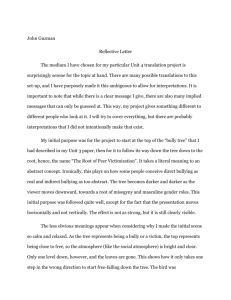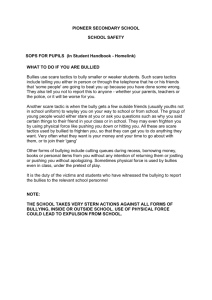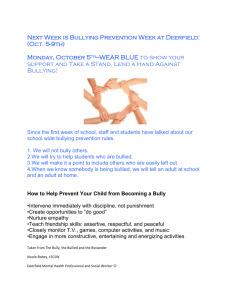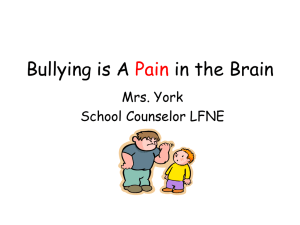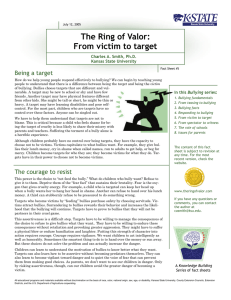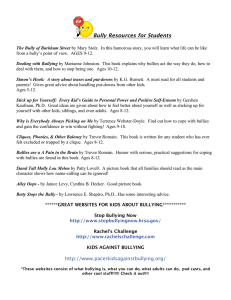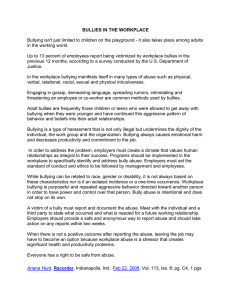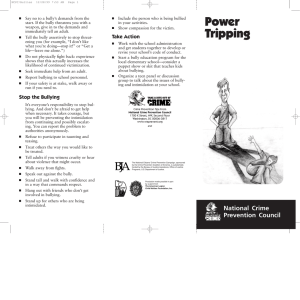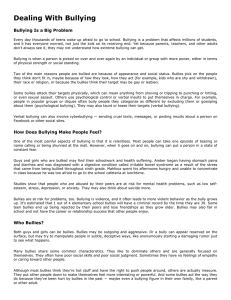”What is Bullying?” GRADE
advertisement
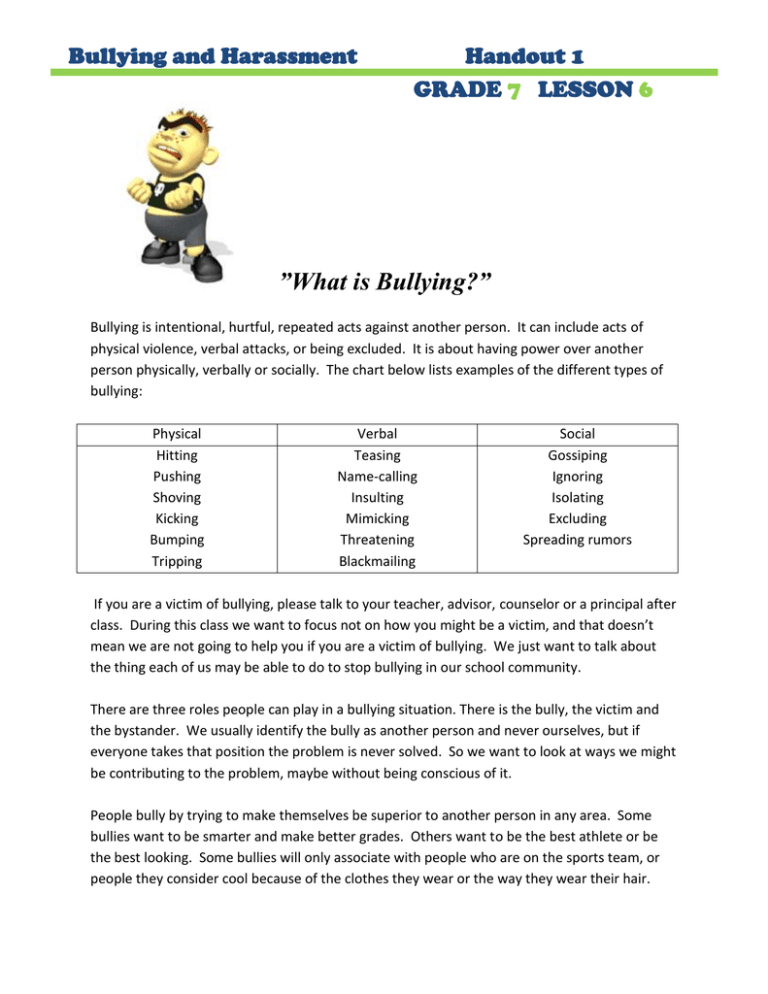
Bullying and Harassment Handout 1 GRADE 7 LESSON 6 ”What is Bullying?” Bullying is intentional, hurtful, repeated acts against another person. It can include acts of physical violence, verbal attacks, or being excluded. It is about having power over another person physically, verbally or socially. The chart below lists examples of the different types of bullying: Physical Hitting Pushing Shoving Kicking Bumping Tripping Verbal Teasing Name-calling Insulting Mimicking Threatening Blackmailing Social Gossiping Ignoring Isolating Excluding Spreading rumors If you are a victim of bullying, please talk to your teacher, advisor, counselor or a principal after class. During this class we want to focus not on how you might be a victim, and that doesn’t mean we are not going to help you if you are a victim of bullying. We just want to talk about the thing each of us may be able to do to stop bullying in our school community. There are three roles people can play in a bullying situation. There is the bully, the victim and the bystander. We usually identify the bully as another person and never ourselves, but if everyone takes that position the problem is never solved. So we want to look at ways we might be contributing to the problem, maybe without being conscious of it. People bully by trying to make themselves be superior to another person in any area. Some bullies want to be smarter and make better grades. Others want to be the best athlete or be the best looking. Some bullies will only associate with people who are on the sports team, or people they consider cool because of the clothes they wear or the way they wear their hair. Bullying and Harassment GRADE 7 LESSON 6 Some bullies say things about others who are different in some way; for instance, they are of a different race or ethnicity. There are also bullies who hurt others because they want to be tough; they vandalize and terrorize to prove how tough they are. Another kind of bully tries to convince others to join them in doing drugs or alcohol or using tobacco. They belittle others and say they are not cool because they won’t join in. All of the bullies have things in common. They are all only concerned with themselves and never consider how their actions hurt others. They want attention and power or they want to pay someone back for their hurt feelings. They do not act responsibly. Honestly respond to the following checklist. You don’t have to write on it or confess to us all about the bully you may have contributed to, but please think about it. Have you ever: Pushed or hit a classmate. Called a student a name to get approval from your friends. Laughed when some one else called a person a name. Excluded someone from your group of friends in a hurtful way. Usually by being very public with the exclusion. Forced a younger brother or sister to do something they did not want to do, like keeping silent or backing you up in a lie. Made negative comments about someone’s race, or told a racial joke. Teased or laughed at a classmate about a low grade they made. Spoke negatively about another student’s physical appearance or the clothes they wear.


